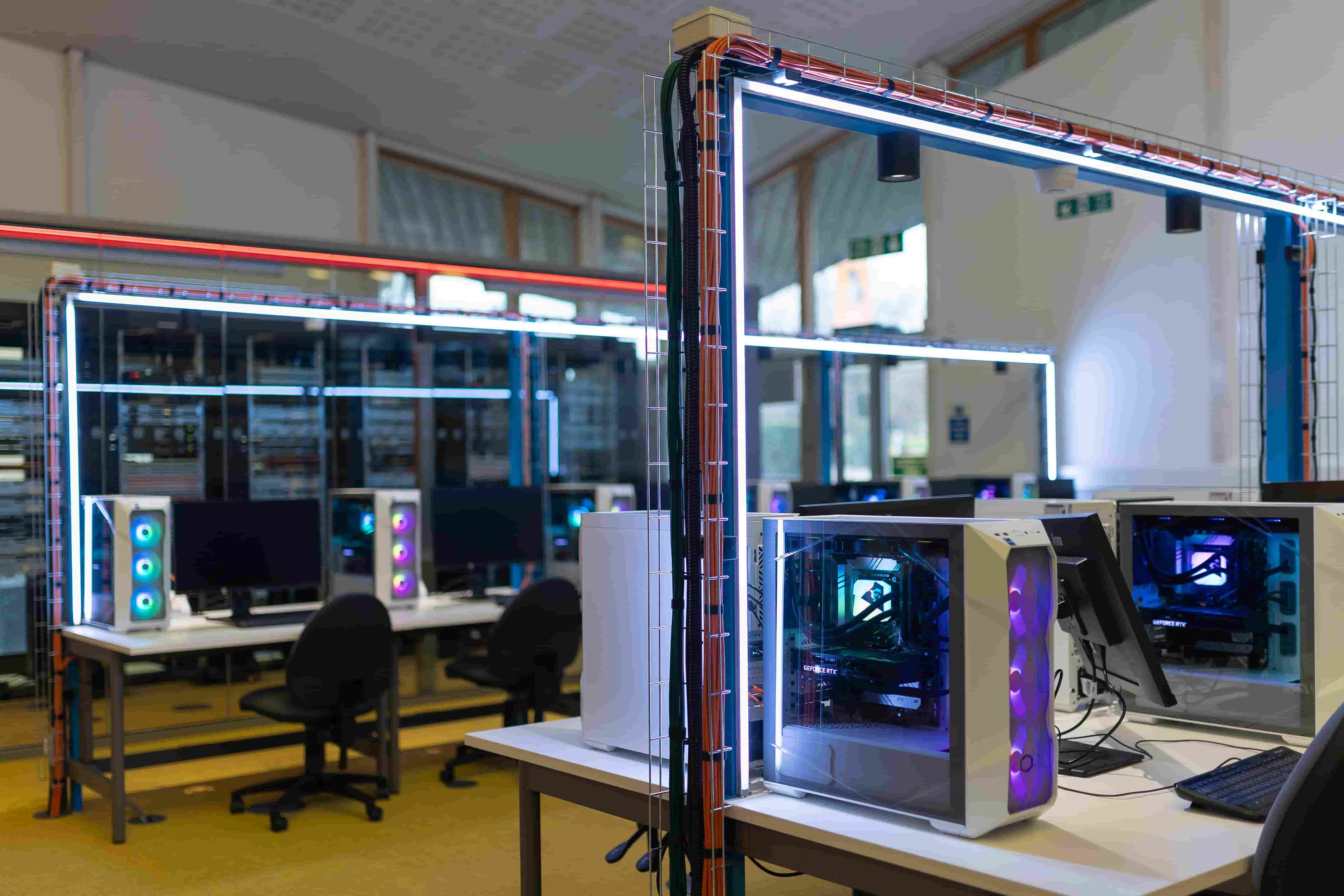Course modules
Core modules:
Research Skills and Academic Literacy (15 credits)
This module covers research methods including qualitative and quantitative approaches. You will carry out literature surveys, data collection, data analysis, critical evaluation and appraisal of published work and data sets. You will also learn how to research and write a technical paper.
Architectures and Operating Systems (15 credits)
In this module you will examine the basic architecture of a modern day computer system. You will cover the functions and operations of the principal hardware and software elements as well as different types of computer systems. This practical module will give you the opportunity to get inside real computers and see how the various components and subsystems work.
Web and Multimedia Development (15 credits)
This module includes the HCI fundamentals of context, design and evaluation. You will also explore the context of user research through studies of users, tasks, activities and environments. You will study web development including HTML and CSS and gain an understanding of common tools as well as knowledge of web development and the skills used in multimedia programming.
Software Development (30 credits)
This module covers object-oriented programming languages; design and implementation inheritance in an OOL; specification of requirements; software design using interaction diagrams and state diagrams; testing and design patterns; and testing OO systems.
Networks (15 credits)
This module covers different aspects of network systems, including LANS, MANS, WANS, WLANS, topologies, ISO 7-layer and TCP/IP models, media (radiated and conducted), signalling techniques, routers, switches, print servers, file servers, web/ftp servers protocols (routing and routed), wireless network configuration and security measures. You will also cover related software and hardware.
Database Systems (15 credits)
This module is about the design and implementation of information systems using databases technology. You will cover: data models (including, relational, object and NoSQL technology); data manipulation languages, e.g. SQL; database security; transaction management; database architectures (e.g. client-server; distributed; Internet and cloud systems); database warehousing and Big Data.
Foundations of Computer Science (15 credits)
During this module you will study soft systems approaches to problem understanding such as rich pictures, CATWOE and root definitions. You will also cover object-oriented techniques for analysis, systems level understanding and modelling/algorithms.
Masters Project (60 credits)
You will undertake a real world project through the support of a sponsor. It will include both a research and a practical element.
Some modules have prerequisites. Read more about what this means in our Help and Advice article.
